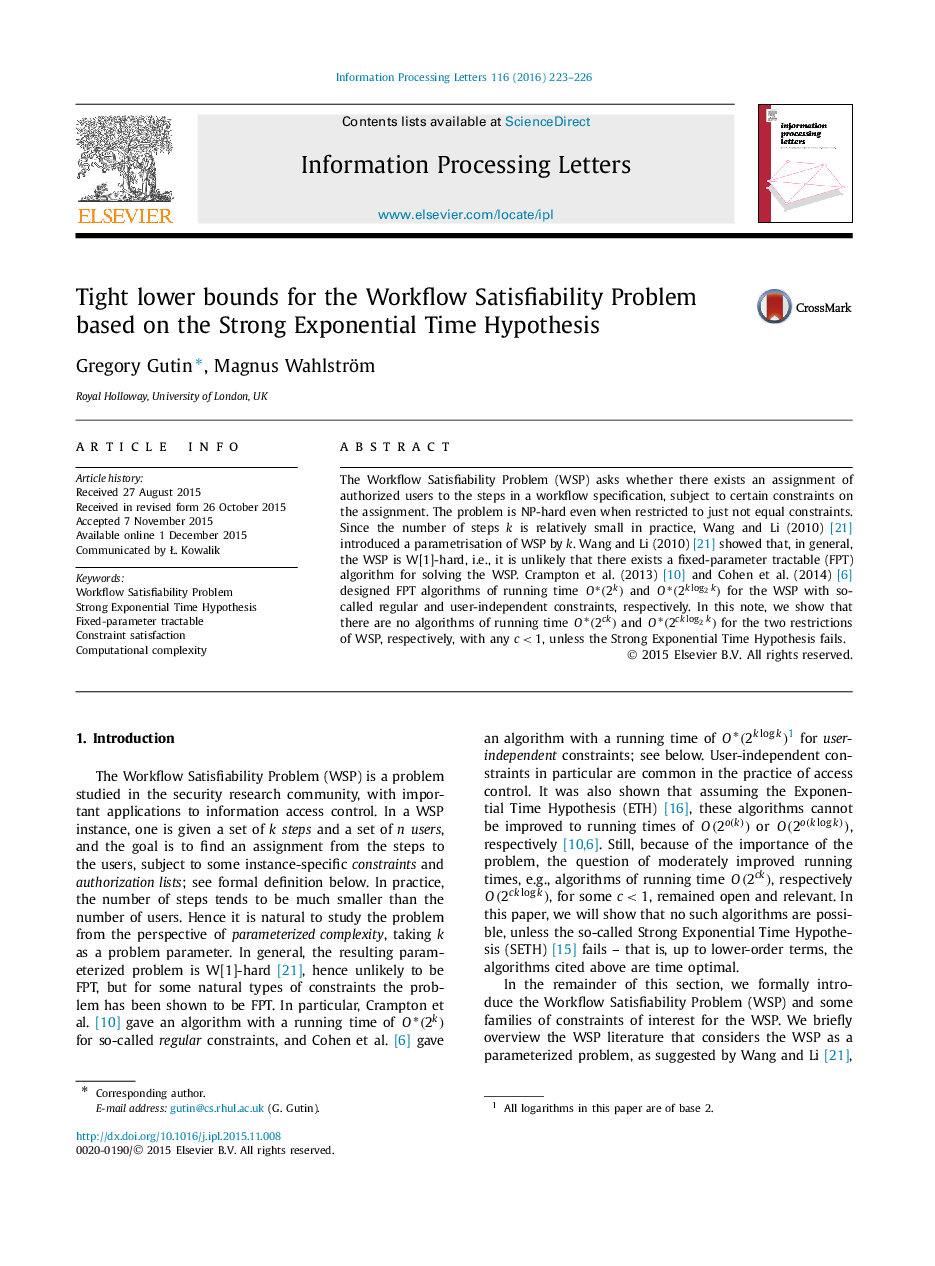| کد مقاله | کد نشریه | سال انتشار | مقاله انگلیسی | نسخه تمام متن |
|---|---|---|---|---|
| 427063 | 686435 | 2016 | 4 صفحه PDF | دانلود رایگان |
• The Workflow Satisfiability Problem (WSP) is a problem used in access control.
• The WSP is parameterized by the number of steps.
• The WSP is considered for regular and user-independent constraints.
• Tight lower bounds are proved for WSP algorithms with the two types of constraints.
The Workflow Satisfiability Problem (WSP) asks whether there exists an assignment of authorized users to the steps in a workflow specification, subject to certain constraints on the assignment. The problem is NP-hard even when restricted to just not equal constraints. Since the number of steps k is relatively small in practice, Wang and Li (2010) [21] introduced a parametrisation of WSP by k. Wang and Li (2010) [21] showed that, in general, the WSP is W[1]-hard, i.e., it is unlikely that there exists a fixed-parameter tractable (FPT) algorithm for solving the WSP. Crampton et al. (2013) [10] and Cohen et al. (2014) [6] designed FPT algorithms of running time O⁎(2k)O⁎(2k) and O⁎(2klog2k)O⁎(2klog2k) for the WSP with so-called regular and user-independent constraints, respectively. In this note, we show that there are no algorithms of running time O⁎(2ck)O⁎(2ck) and O⁎(2cklog2k)O⁎(2cklog2k) for the two restrictions of WSP, respectively, with any c<1c<1, unless the Strong Exponential Time Hypothesis fails.
Journal: Information Processing Letters - Volume 116, Issue 3, March 2016, Pages 223–226
